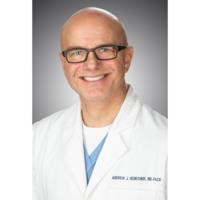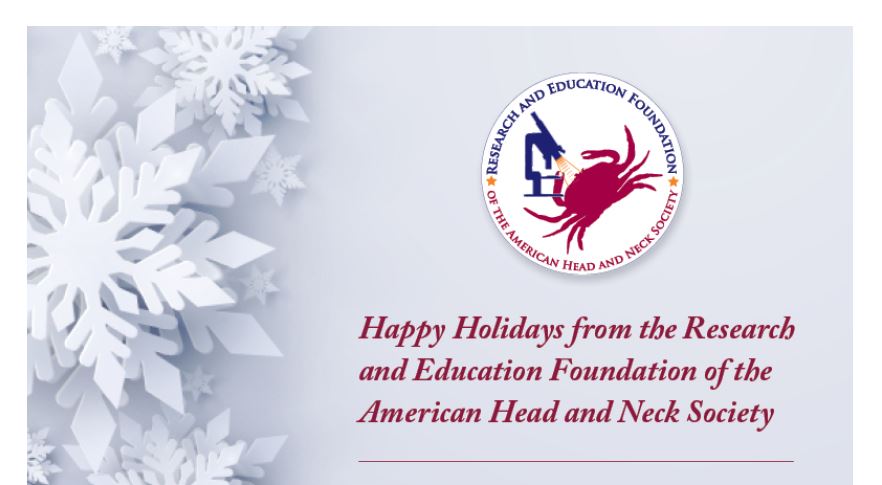Sorry, but you do not have permission to view this content.
AHNS Receives Highest CME Designation
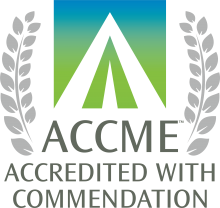 The American Head and Neck Society (AHNS) has been reviewed by the Accreditation Council for Continuing Medical Education (ACCME®) and awarded Accreditation with Commendation for six (6) years as a provider of continuing medical education (CME) for physicians. Accreditation in the ACCME System seeks to assure the medical community and the public that the AHNS delivers education that is relevant to clinicians’ needs, evidence-based, evaluated for its effectiveness, and independent of commercial influence.
The American Head and Neck Society (AHNS) has been reviewed by the Accreditation Council for Continuing Medical Education (ACCME®) and awarded Accreditation with Commendation for six (6) years as a provider of continuing medical education (CME) for physicians. Accreditation in the ACCME System seeks to assure the medical community and the public that the AHNS delivers education that is relevant to clinicians’ needs, evidence-based, evaluated for its effectiveness, and independent of commercial influence.
The Accreditation Council for Continuing Medical Education (ACCME®) accredits organizations that provide continuing medical education for physicians. The ACCME System employs a rigorous process for evaluating institutions’ CME programs according to standards that reflect the values of the educator community and aim to accelerate learning, inspire change, and champion improvement in healthcare. Through participation in accredited CME, clinicians and teams drive improvement in their practice and optimize the care, health, and wellness of their patients.
Learn more about our next medical education activity here: http://www.ahns2020.org
LAST CALL to Submit an Outstanding Nominee
The Women in Head and Neck Surgery Service of the American Head and Neck Society (AHNS) are accepting nominations for the Margaret F. Butler Outstanding Mentor of Women in Head and Neck Surgery Award.
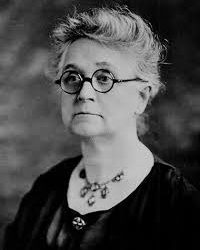 Dr. Margaret Butler was the first female otolaryngology chairperson in the United States. In 1906, she was appointed Chair of Ear, Nose and Throat at Women’s Medical College of Pennsylvania. As a respected otolaryngologist and an ambassador of the specialty, Dr. Butler provided a blueprint for future generations of female otolaryngologists.
Dr. Margaret Butler was the first female otolaryngology chairperson in the United States. In 1906, she was appointed Chair of Ear, Nose and Throat at Women’s Medical College of Pennsylvania. As a respected otolaryngologist and an ambassador of the specialty, Dr. Butler provided a blueprint for future generations of female otolaryngologists.
The purpose of this Award is to recognize individuals who have demonstrated leadership in promoting gender diversity in the field of Head and Neck Surgery and its related endeavors. A secondary goal is to encourage further training and mentorship of women leaders in our specialty.
The awardee will receive an honorarium and will be honored at the Women in Head and Neck Surgery Reception on Tuesday July 21, 2020.
Individuals nominated for this award will have the following qualities:
- Demonstrated leadership and consistent track record of promoting gender diversity and equity in head and neck surgery and its related fields.
- Consistent support and promotion of women in head and neck surgery and its related endeavors, including demonstrable mentoring of women career advancements and promise through merit-based career advancements and promotions.
- Measurable impact in the promotion of women in head and neck surgery, such as career advancement of mentees, mentorship in publications and research, etc.
Present or past member of the AHNS are preferred but not required. The application closes December 15, 2019 5PM EST.
#BeLikeButler
Please click here to submit your nomination application.
Service and Leadership
American Head and Neck Society – The Cancer Prevention Service
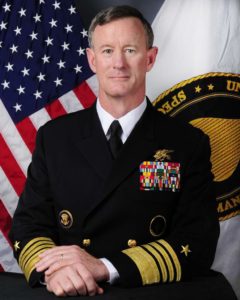
November was declared National Veteran and Military Families Month. In November, we celebrate Veterans Day, a commemoration of the hundreds of thousands of men and women who have dedicated their lives and spirit leading in the defense of our country. At this Spring’s American Society of Head and Neck Surgery meeting in Austin, many of us listened to Admiral William McRaven with deep admiration as he described the many struggles, and successes, effective leaders experience in the course of a prescribed mission. He poignantly offered that the success of that mission, be it military, surgical, program-building, or overcoming life’s traumas depend on our vigilant attention to (seemingly) little things. His conclusion: every day, you must Make Your Bed.
We all have the experience of participating in administrative discussions that focus on the “high-level view”, implying somehow that being in “the weeds” is too difficult, too dense, and that work in the weeds is better suited for foot soldiers than those that possess more stars and more years. I’m curious whether the current of endless meetings and their inefficiencies could be slowed if leaders spent more time in the weeds, making sure “the nail” is in place, so that the shoe, horse, soldier, battle, and war are not lost. Doubtless, teams can become bogged down in their detail-oriented efforts. How, then, do leaders provide the necessary balance that maintains and revisits the overall direction of a project and guides the day-to-day execution of its vision?
Our recent experience starting a service and outreach project might help to provide insight into such challenges. Similar to many other teams, we were fortunate to win support from the AHNS for our project that provides screening and clinical support services to the homeless in the Greater Denver area. We partner with a well-established shelter that helps many of its clients on a daily basis which has strengthened our efforts with follow-up in this highly transient population. In the past 18 months, we have evaluated more than 200 clients. From inception to the present, our team has led each other to meet predictable (and many unpredictable!) challenges. The following five points have helped achieve some of our successes and have guided our responses to our failures. Each is dependent on and independent of the other.
1. Invest in Human Capital: Successful leaders cast a wide net when building teams. Diversity is welcomed. Differences are discussed and celebrated. Commonalities among members are discovered and nurtured. Small, dedicated teams are formed that embrace a singular purpose. If practical, co-location is encouraged. Leaders make participation (volunteerism) easy, and recognize the importance of staff wellness. Our outreach team has experienced an overall improvement in regular job satisfaction (the fourth pillar of the Quadruple Aim in Healthcare.) Effective leaders consistently ask, “Who can best amplify change?” and amplify them.
2. Creatively Partner: Seemingly disparate groups when brought together offer unique experiences and resources that combine to create powerful synergies benefitting all involved. Our team partners with Father Woody’s (support organization for the homeless), App-based transportation services, the Colorado Coalition for the Homeless, multiple dental practices, our hospital system, our colleagues in multiple medical specialties, area schools, and others. Each of these organizations, in turn, leverages their resources to gain knowledge that informs their specific operational goals. An excellent example of this process is Rush University Hospital in Chicago. That organization and its leaders have been recognized for their ability to understand the impact of social determinants of health has in their community and to partner with local and regional groups to create inclusive, sustainable, and culturally-competent investment opportunities that directly benefit at-risk populations. This process has been termed Place-Based Investing. A robust scale-up process has resulted in participation by a network 41 hospitals nationwide that purchase $50B worth of goods from their local communities and hold $150B in assets. Therefore, innovative leaders that recognize the potential of being service-oriented do so by consistently creating value directed towards advancing the social good.
3. Revisit “Mission” Frequently: It is easy for organizations to embrace “new” initiatives. Our culture frequently becomes enamored by the latest and greatest, dedicating its energy and resources to projects with short investment horizons. This results in many pilot projects being developed but that are not allowed to fully realize their potential. By revisiting one’s mission frequently, and messaging and living it effectively, service-oriented leaders help their teams create and maintain focus. Being agile within this focus, trying new things is important and challenging; creativity sparks innovation and productive disruption, but each new idea or experiment forwarded by the team must past the litmus test of being closely aligned with the original mission.
4. Anticipate Barriers: What are our blindspots? At times, our team has made the wrong assumption that others share the same ethos as we do about the project, especially because such projects are grounded in an effort to improve conditions for the marginalized. External political and economic forces reveal and forward their agendas which frequently aren’t aligned with ours. Good leaders search for alignment. Introspection reveals that we are all products of our personal history and are guided and biased by this narrative. The present state of instant digital connectedness skews our perception of time urgency: not every issue constitutes a burning platform. As such, our sense of patience has been lost. With respect to outreach and the advancement of social and healthcare equity, sustainable change truly depends on our honest answer to the question: Do we want to be Hero or Helper? We are reminded that policy does not happen to us; it happens through us, and that we must shape policy accordingly. Change psychology repeatedly demonstrates to us that impactful change can only move at the speed of trust.
5. Foster and Promote a Deep Sense of Gratitude: We lead clinical and administrative teams every day. Deadlines, inefficiencies, and crises demand our attention and take a heavy toll on our collective ability to recognize goodness even in the course of battle. However, we can choose to lead teams during these times with conspicuous gratefulness. Gratitude strengthens our posture and decision-making. Our team achieves a clarity of purpose that enables them to discern its purpose, weather overwhelming fatigue, understand loss, and to discover the vital resiliency needed to serve others. Apropos for this season of Thanksgiving, through gratitude, we are able to profoundly meet others in their story and humbly walk in their shoes.
The preceding discussion offers a few thoughts by one person that may serve to encourage ongoing dialogue regarding the relationship between leadership and service. The AHNS is certainly fortunate to have countless members engaged in impactful projects that forward its mission of mentorship and research leading to the contemporary, innovative, and vigilant care of our patients. The Cancer Prevention Service of the AHNS welcomes all comments from Society members regarding their individual experiences that could positively direct the Society’s efforts to design and implement initiatives that improve the health and wellness of our local and global communities.
For information on National Veteran and Military Families Month click here or https://www.militaryfamily.org/november-is-military-family-appreciation-month/
AHNS Research and Education Foundation
The Research and Education Foundation is proud to support the AHNS’ research and education awards which provide opportunities for outstanding head and neck surgeons and surgeons in training.
Through the generous contributions of donors like you the Foundation is poised to build on our legacy of scientific excellence.
Please make your gift to the AHNS Foundation today and together we can continue to advance care for head and neck cancer patients.
This year, we encourage you to direct your donation to the Eduardo Méndez Diversity Fellowship or the area of greatest need.
Donations can be made online by clicking here or visiting the website:
https://www.ahnsfoundation.info/donations/
Checks can be made out to the AHNS Foundation and mailed to: 11300 W. Olympic Blvd., Ste 600, Los Angeles, CA 90064
- « Previous Page
- 1
- …
- 19
- 20
- 21
- 22
- 23
- 24
- Next Page »
